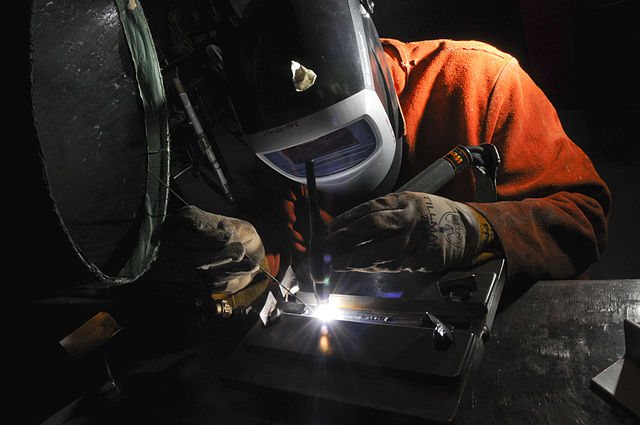I grew up in a blue-collar family. My dad was a mechanic for twenty years and my mom managed the high school cafeteria. My first jobs involved manual labor. I learned to work on cars, mow lawns, paint houses, and repair decks. I went off to college and got a white-collar education and then to seminary to further cement myself among the white-collar crowd of professors and pastors.
In my family, we worked. In my ministry training we worked too, but it was a different kind of work. Throughout my education, I began to understand that there is hard work associated with reading, careful study, and sermon preparation. Behind my desk, I learned the challenges of managing ministry calendars and preparing sermons. But all the while, I did so with a constant struggle against my blue-collar upbringing.
Sometimes sitting in an air-conditioned office studying, counseling, and praying didn’t feel like work. Yes, my body registered the fatigue, but somewhere in my subconscious I registered work with sweat—with strenuous physical labor. Even now, I occasionally struggle with a false sense of guilt related to my “white-collar” calling, but I’ve learned that my blue-collar background helps me connect to my blue-collar church.
I serve in a church in a small town in South Carolina. Our church is a blue-collar church. You must understand that blue-collar is not primarily about socioeconomics—it is primarily about a mindset. I have people in my church that make very good money. I have men in my church that make $200,000 per year while wearing a t-shirt and jeans to work every day. We have college graduates, bankers, and people with advanced degrees. But the profession doesn’t make the man (or woman). The profession is what they do, but not who they are. Deep down they are small-town people. Many of them are country people. They are wonderful, fun, salt-of-the-earth people, but they do not fit in well among a white-collar crowd. (And for the record, they are perfectly OK with that.)
For a long time, I struggled with some of my blue-collar guilt until I realized that God had put me in a position to minister well among this blue-collar crowd. These are my kind of people. I understand them and amazingly, they seem to understand me. As a result, I have worked to overcome my false guilt and to tap into the riches of my background that enable me to better minister among the people to whom God has called me.
Here are some lessons I’ve learned:
- Pastor the church to which God has called you. It can be tempting to pastor the church you want to serve rather than the church you’ve been called to serve. Do not impose a white-collar ministry on a blue-collar church.
- Sometimes a truck tail gate is the best place for discipleship. As I spend time with men in my church, meeting them where they are opens doors for discipleship that do not exist in my office. If we read too many authors from urban centers or academia (or, yes, even Nashville), we may begin to believe that all real discipleship takes place at Starbucks, but in Camden, SC a whole lot of discipleship takes place in the natural rhythms of life.
- It is OK to slow down. Most of us could benefit from being more productive, but the people among whom I minister really do not care how much I’ve accomplished today. They are more concerned with whether or not I make the time to listen to them. Will I put my phone down long enough to look them in the eye and speak when we pass in the hallway.
- Pick up a hammer. This is where my blue-collar background really comes in handy. For blue-collar people, you earn their trust when you work alongside them. Go help cut up a tree for a neighbor or church member. Cut the church grass one day or help build a shed. People with calloused hands respect other people with calloused hands.
- Learn your culture. Learn about turkey farming. Try to understand forestry. How does the coal industry work? I toured a plant last week and as a result I have a better understanding of some of the people in my church who work there. They also are more willing to hear what I have to say since I have shown an interest in them beyond their attendance at church events.
- Always be the pastor. I do not mean wear a suit and tie. I also do not mean that you should always remind people of your position. I mean that in every situation where you find yourself, look for opportunities to fulfill your calling. Talk about Sunday’s sermon at a dove shoot. I’ve taught soteriology beside a tractor. I’ve prayed for failing marriages in deer stands. I have heard stories of God’s triumph in the front seat of my truck and I’ve learned of people’s deepest despair while driving nails. Pastoral ministry is not limited to your office.
Maybe you grew up blue-collar like I did and are still trying to balance your white-collar job with a blue-collar ministry. Maybe your dad was a pastor or a doctor or a lawyer in Raleigh and you are trying to figure out how to minister in Albemarle? Regardless of where or how you grew up, if God has called you to a blue-collar church, love the people to whom he has called you and watch them love you back. Give them Jesus and they will be grateful.


